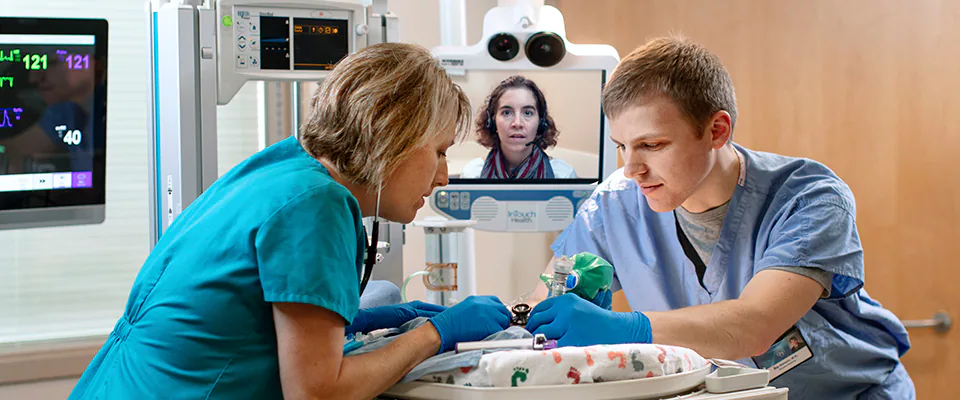When it comes to neonatal care, timely access to specialized medical expertise can make all the difference for vulnerable newborns. For many hospitals — particularly those in rural or underserved areas — ensuring that critically ill or premature infants receive expert care often requires complex and costly patient transfers. But today, advances in telehealth are transforming how neonatal care is delivered, expanding reach, improving outcomes, and easing burdens on families and providers alike.
Expanding Access to Neonatal Expertise
Telehealth, particularly in the form of neonatal teleconsultation, allows neonatologists and specialized pediatric care teams to evaluate and guide treatment for newborns remotely. Through secure video conferencing, high-resolution imaging, and real-time monitoring, clinicians in regional hospitals or community health settings can connect with experts at neonatal intensive care units (NICUs) across the country.
This remote collaboration can be especially crucial in situations where every minute counts — such as complications during delivery or the sudden deterioration of a newborn’s condition. Instead of transferring an infant hundreds of miles away, bedside teams can consult with a neonatologist in real time, initiating critical interventions immediately and determining whether a transfer is truly necessary.
Benefits for Hospitals and Healthcare Systems
For hospitals, particularly those without on-site NICU capabilities, integrating telehealth into neonatal care offers several advantages:
- Improved care coordination: Remote access to neonatal specialists helps community hospitals manage complex cases locally, reducing pressure on regional NICUs and minimizing disruptions to the infant and family.
- Cost efficiency: Avoiding unnecessary transfers lowers transportation costs and reduces the financial burden on both families and healthcare systems.
- Staff support and education: Telehealth also serves as a tool for staff development. Real-time collaboration with neonatologists can enhance the knowledge and confidence of local providers, improving long-term care quality.
Some hospitals have even used telehealth to provide virtual neonatal resuscitation support during deliveries, ensuring optimal outcomes in high-risk births.
Supporting Families Closer to Home
Perhaps one of the most noteworthy benefits of neonatal telehealth is the impact it has on families. Being able to keep a newborn close to home — rather than transferred to a distant tertiary care center —means families can remain together during a critical time. Parents can stay involved in their baby’s care and maintain the essential bonds that support both emotional well-being and infant development.
Considerations for Implementation
While the promise of telehealth in neonatal care is compelling, healthcare organizations must carefully plan implementation to ensure success. This includes:
- Reliable technology infrastructure to support real-time communication and data sharing
- Staff training and protocols to streamline teleconsultations during emergencies
- Clear partnerships with regional NICUs or academic medical centers to establish dependable access to specialists
A Future of Greater Equity in Neonatal Care
Telehealth is not a substitute for in-person care when it’s truly needed — but it is an increasingly powerful tool in closing the neonatal care gap. As more hospitals embrace telehealth, we move closer to a future where high-quality neonatal care is not determined by geography, but guided by timely expertise and collaborative technology. For the smallest patients and their families, that can make a lifetime of difference.
Even with advancements like telehealth, staffing your NICU with the right talent remains critical for optimal outcomes. If you’re experiencing NNP vacancies in your NICU, allow Ensearch to simplify the hiring process. We specialize in filling openings with qualified full time or locum professionals for hospitals looking to expand their workforce. Get started by scheduling a consultation today.

